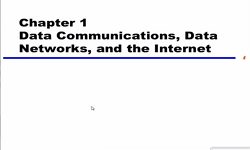The advent, course, and possible consequences of the COVID-19 pandemic are now the focus of global attention. From whichever side the geopolitical centers of influence might view it, the problem of the coronavirus concerns all world leaders and the re...
http://chineseinput.net/에서 pinyin(병음)방식으로 중국어를 변환할 수 있습니다.
변환된 중국어를 복사하여 사용하시면 됩니다.
- 中文 을 입력하시려면 zhongwen을 입력하시고 space를누르시면됩니다.
- 北京 을 입력하시려면 beijing을 입력하시고 space를 누르시면 됩니다.
Impact of Internet Media Reports on the COVID-19 Pandemic in the Population Aged 20-35 = Impact of Internet Media Reports on the COVID-19 Pandemic in the Population Aged 20-35
한글로보기https://www.riss.kr/link?id=A108208599
- 저자
- 발행기관
- 학술지명
- 권호사항
-
발행연도
2022
-
작성언어
English
- 주제어
-
자료형태
학술저널
-
수록면
39-44(6쪽)
- 제공처
-
0
상세조회 -
0
다운로드
부가정보
다국어 초록 (Multilingual Abstract)
The advent, course, and possible consequences of the COVID-19 pandemic are now the focus of global attention. From whichever side the geopolitical centers of influence might view it, the problem of the coronavirus concerns all world leaders and the representatives of all branches of science, especially physicians, economists, and politicians - virtually the entire population of the planet. The uniqueness of the COVID-19 phenomenon lies in the uncertainty of the problem itself, the peculiarities and specifics of the course of the biological processes in modern conditions, as well as the sharp confrontation of the main political players on the world stage. Based on an analysis of scientific research, the article describes the profile of the emotional concept of "anxiety" in Russian linguoculture. Through monitoring the headlines of Russian media reports in the "COVID-19" section of Google News and Mail News news aggregators dated August 4-6, 2021, the study establishes the quantitative and qualitative characteristics of the alarm-generating news products on coronavirus in the Russian segment of the Internet and interprets the specifics of media information about COVID-19. The level of mass media criticism in Russia is determined through a phone survey. It is concluded that coronavirus reports in online media conceptualize anxiety about the SARS virus and the COVID-19 disease as a complex cognitive structure. The media abuse the trick of "magic numbers" and emotionally expressive words in news headlines, which are perceived by mass information consumers first and typically uncritically.
동일학술지(권/호) 다른 논문
-
A Comparison of Scene Change Localization Methods over the Open Video Scene Detection Dataset
- International Journal of Computer ScienceNetwork Security
- Panchenko, Taras
- 2022
-
- International Journal of Computer ScienceNetwork Security
- Sheta, Osama E.
- 2022
-
Theoretical And Methodological Principles Of Distance Learning: Priority Direction Of Education
- International Journal of Computer ScienceNetwork Security
- Fabian, Myroslava
- 2022
-
Detecting A Crypto-mining Malware By Deep Learning Analysis
- International Journal of Computer ScienceNetwork Security
- Aljehani, Shahad
- 2022




 ScienceON
ScienceON






